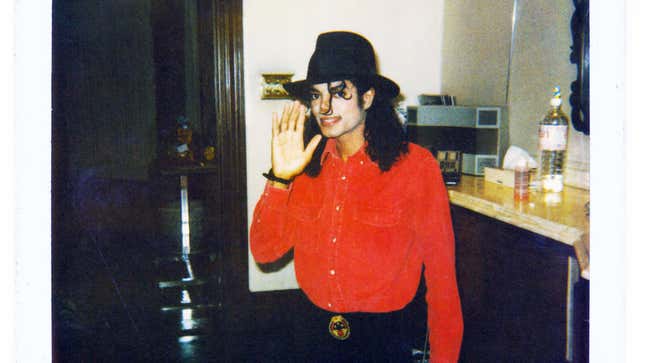
When it comes to an iconic music artist such as Michael Jackson and the controversies that surrounded him, you can never really leave Neverland.
According to Variety, that was the topic broached at a Tuesday night panel titled, “Truth Be Told? Documentary Films Today,” hosted by the UCLA School of Law Ziffren Center and USC Annenberg School for Communications and Journalism. At the panel, a group of attorneys discussed the ethics behind documentaries, in general, in terms of questioning truth and objectivity.
Naturally, Dan Reed’s Leaving Neverland came up as a topic. The gripping HBO documentary follows James Safechuck and Wade Robson as they recount their sexual abuse allegations against the late King of Pop, which they claimed occurred when they were children.
As Variety reports:
Moderated by UCLA School of Law’s First Amendment expert Dale Cohen, the panel also included powerhouse entertainment lawyers John Branca and Howard Weitzman — both embroiled in the controversy over HBO’s “Leaving Neverland” in their roles representing the estate of Michael Jackson — along with veteran director Taylor Hackford (wife Helen Mirren was an interested observer) and USC Professor of Communications Christopher Smith.
Jackson’s estate has been quite vocal about their issues with the documentary, particularly how “one-sided” it is.
“The purpose of the First Amendment is supposedly getting at the truth, but the lack of defamation protection for an individual no longer living isn’t helpful in that regard,” Branca said at the panel. “If copyright protection is life plus 75 years, there’s no reason a defamation suit shouldn’t be life plus 20, 30 or even 40 years.”
Not only have they been vocal, but they’ve also taken their concerns to court, suing the premiere cable provider for breach of a non-disparagement clause. A judge recently ruled that the case will remain open after rejection the estate’s arbitration request.
Branca and Weitzman also touched on what they believed to be a longtime prejudiced targeting of Jackson by the media, which they claim is continuing to this day.
“I was a big fan of Elvis Presley,” Branca noted, using Presley as an example since he began dating future wife Priscilla when she was only 14 years old. “John Lennon beat his first wife, but he wrote ‘Imagine,’ so we deify him. Now we’re about to hear stories about Martin Luther King, Jr. Does their personal life make it impossible to enjoy their artistry?”
In addition to the “separating the art from the artist” argument, Branca made his feelings plain, citing racism as the primary reason behind the ongoing controversy.
“It’s like what James Baldwin once wrote (about how) Michael Jackson will forever pay the price for being as successful as he was,” Branca continued. “There’s a large segment of the press that doesn’t care whether Michael is innocent or guilty because it’s not controversial enough. In the end, I really believe it’s a form of racism.”
Given the complexities of this case, it’s tough to say whether there ever really is an “end.”



